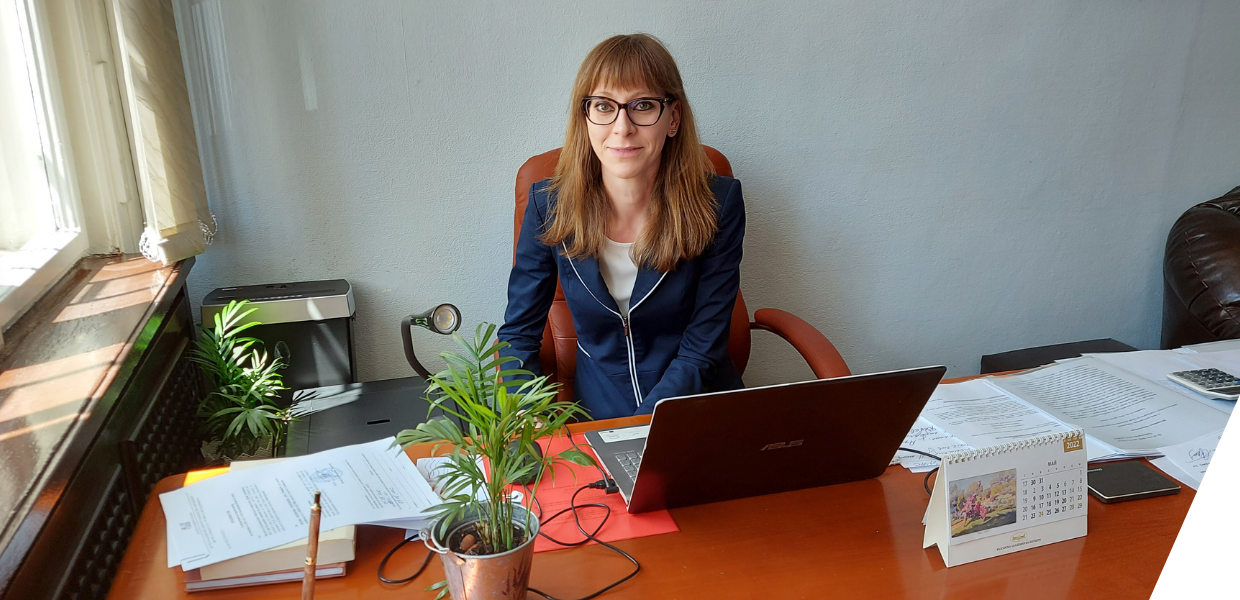How did you enter your profession?
I am a graduate of Southeast European Studies and International Relations and I got my PhD in History. However, I definitely differ from the image of a scholar that most people probably imagine. My professional experience first started in the private sector. For years, I was involved in international project and event management. At some point my innate curiosity, the pursuit of continuous development and intellectual enrichment, and the desire to be useful to society prevailed and I decided to switch to academia.
The transition was challenging, especially given the huge pay gap. Nevertheless, I do not regret the decision I made three years ago when I joined the Institute of Balkan Studies & Center of Thracology at the Bulgarian Academy of Sciences. I believe that the experience and knowledge I have gained in other fields help me in my scholarly work.
What are you currently working on?
I am currently working on several national and international projects in the field of cultural heritage and digital humanities that give me the opportunity to engage in multi-year scholarly exchange and cooperation across locations. I am also writing my second monograph on European influences in the modern urban music culture in the Balkans. I intend to finish the book by the end of this year, which will pave my way to full professorship.
In addition to being an Assistant Professor, I am also an Academic Coordinator in the institute I am affiliated with. As such, I collaborate with universities and research institutes, museums, libraries, archives and other institutions in Bulgaria and abroad. I am actively involved in science popularisation activities to share scientific knowledge with the general public. I organise open air and virtual exhibitions, workshops, public lectures, book fairs and more.
What are some of the challenges in your role? What are some of your favourite elements?
The main challenges revolve around funding and while this affects all researchers, it can disproportionally affect these areas of research, such as the Humanities, which are not deemed a priority for many funding bodies. These challenges boil down to lack of funding and inadequate evaluation.
Nonetheless, the positive aspects of my work are more, and they are more important. Some of my favorite elements are the independence at work, the opportunity to establish connections with researchers from other countries and to interact with and learn from people from different cultures, disciplines, and backgrounds. Last but not least, I greatly appreciate that the work in academia gives me the rare chance to be continuously inspired.
What was your motivation for joining the Members Council?
My motivation for joining the Members Council was that it was full of amazing people from widely varying backgrounds. The connections one makes and the learning opportunities that go along with it are immense. Working together in the Council allows us to create and innovate ways to embrace digital change and help people use cultural heritage for education, research, and creation.
What do you plan to do as a Members Councillor?
First, I will work to make different audiences understand the value of digital resources and their use. Further work is needed to understand specific ways in which this could be done in order to gain meaningful insights.
I will also support and promote the development of digital preservation policies, which in most organisations (especially in my home country) are scarce and underdeveloped. Owing to the shortage of funding, archival materials suffer from deterioration and technological obsolescence. In this context, cultural heritage institutions are confronted with major challenges that hamper the digitisation and preservation of cultural heritage.
Last but not least, I will encourage conversations about what cultural heritage data exists, what is recorded, and how it is being used at a local, regional, national and international level. Greater collaboration on infrastructure issues that enable interoperability and more integrated discovery of heritage data is a key requirement if the sector is to enable effective use and reuse of digital collections.



